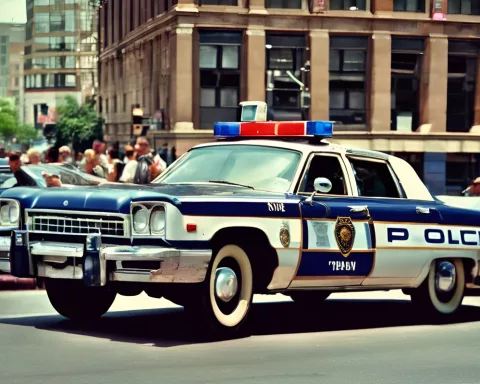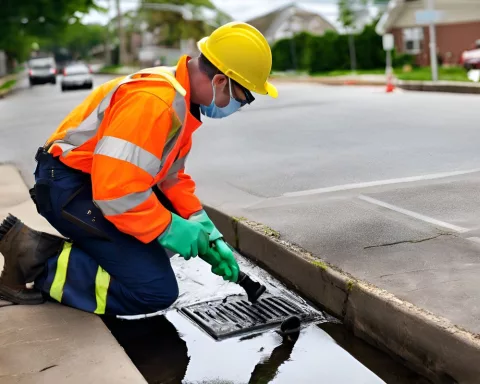President Cyril Ramaphosa called for an extraordinary meeting of BRICS leaders to address the crisis in the Middle East. In his discourse, he highlighted the severe reality of Gaza’s devastation and proposed immediate and all-encompassing actions towards a fair and peaceful resolution. He also voiced his belief that BRICS bears a vital duty in promoting worldwide peace. Ramaphosa’s speech was a compelling call to join forces and work towards a just and enduring peace in the region.
Heeding the Call for Peace: Reflections on President Cyril Ramaphosa’s Plea to the BRICS Leaders
President Cyril Ramaphosa called for an extraordinary meeting of BRICS leaders to address the ongoing crisis in the Middle East. In his discourse, he highlighted the severe reality of Gaza’s devastation, pinpoints the underlying cause of the conflict, and proposed immediate and all-encompassing actions towards a fair and peaceful resolution. He further voiced his belief that BRICS bears a vital duty in promoting worldwide peace.
Ramaphosa’s Unforgettable Address
On the globally significant day of November 21, 2023, South Africa’s President Cyril Ramaphosa issued a call for an extraordinary meeting of BRICS leaders. The President made a virtual opening statement to those in attendance, who were comprised of leaders from BRICS countries, invited guests, ministers, officials, and more. His discourse was marked by a profound apprehension over the ongoing crisis in the Middle East, and his words formed a narrative that was as riveting as it was distressing.
The narrative that Ramaphosa weaved began on October 7, when a catastrophic assault by Hamas on Israel resulted in the demise of over 1,200 people. As these horrific events unfolded, the world watched helplessly, bearing witness to the significant sacrifice of innocent civilians in Gaza, with a large proportion being women and children. The death count in Gaza climbed alarmingly to 11,000, with many thousands more wounded.
President Ramaphosa painted a poignant image of the devastation etched into Gaza’s history, including the extensive damage inflicted on the infrastructure, residential buildings, healthcare facilities, and public amenities. He further highlighted the severe reality of more than half of Gaza’s population being displaced.
A Detailed Analysis of the Conflict
The President’s narrative was a harmonious blend of compassionate recollection and critical analysis. He extended his sympathies and prayers to all those impacted by the violence in Israel, Gaza, and the West Bank. Simultaneously, he did not hesitate to spotlight the clear breaches of international law by both Israel and Hamas. He argued that the denial of basic essentials to Gaza’s residents was equivalent to genocide.
President Ramaphosa proceeded to pinpoint the underlying cause of this conflict – the unlawful occupation of Palestinian land by Israel. He referenced UN Security Council Resolution 2334, which categorizes Israeli settlements as a glaring infringement of international law. His speech was filled with an urgent appeal to the international community to take immediate, tangible steps towards forming a pathway to a fair and peaceful resolution.
His discourse was charged with a fervent call for South Africa’s involvement in resolving the crisis. His list of proposals included an immediate and all-encompassing ceasefire, the establishment of humanitarian corridors, and a cessation of weapon supplies that were exacerbating the conflict. He further advocated for the liberation of all civilian captives, negotiations led by Palestinians and Israelis, and the implementation of a UN Rapid Deployment Force to monitor hostilities and safeguard civilians.
BRICS’s Role in Global Peace
As a global and South African leader, Ramaphosa recognized the significance of international unity. He voiced his belief that BRICS, with its substantial influence as a representative of the Global South, bears a vital duty in promoting worldwide peace.
His address was a reflection of the prevailing severe circumstances and a call for collective action. It encapsulated his aspirations for a future where the historical wrongs inflicted upon the people of Palestine and Israel would cease.
During his discourse, President Ramaphosa demonstrated a skillful combination of intricate analysis and empathetic narrative, addressing an issue of grave international concern. Despite the serious subject, his language was approachable to a broad audience, shifting effortlessly from historical references to current events. This vital articulation is a testament to Ramaphosa’s leadership and his dedication to peace, justice, and humanity.
As the virtual meeting reached its conclusion, Ramaphosa expressed his gratitude to the participants, leaving them with a compelling message – a clear call to join forces, amplify actions, and finally lay to rest this historical injustice. By doing so, he confirmed the essential role of BRICS in the global effort to bring about a just and enduring peace. The President’s words were not just a comprehensive recounting of the crisis but also a fervent appeal for unity and action towards peace in the Middle East.
What was President Ramaphosa’s call to the BRICS leaders?
President Cyril Ramaphosa called for an extraordinary meeting of BRICS leaders to address the crisis in the Middle East. In his discourse, he highlighted the severe reality of Gaza’s devastation and proposed immediate and all-encompassing actions towards a fair and peaceful resolution. He further voiced his belief that BRICS bears a vital duty in promoting worldwide peace.
What was the cause of the conflict in the Middle East according to President Ramaphosa?
President Ramaphosa pinpointed the underlying cause of the conflict as the unlawful occupation of Palestinian land by Israel. He referenced UN Security Council Resolution 2334, which categorizes Israeli settlements as a glaring infringement of international law.
What were some of President Ramaphosa’s proposals to resolve the conflict?
President Ramaphosa’s list of proposals included an immediate and all-encompassing ceasefire, the establishment of humanitarian corridors, and a cessation of weapon supplies that were exacerbating the conflict. He further advocated for the liberation of all civilian captives, negotiations led by Palestinians and Israelis, and the implementation of a UN Rapid Deployment Force to monitor hostilities and safeguard civilians.
What was President Ramaphosa’s message for BRICS leaders?
President Ramaphosa’s message for BRICS leaders was a clear call to join forces, amplify actions, and finally lay to rest this historical injustice. He confirmed the essential role of BRICS in the global effort to bring about a just and enduring peace.
What was the significance of President Ramaphosa’s address?
President Ramaphosa’s address was a reflection of the prevailing severe circumstances and a call for collective action. It encapsulated his aspirations for a future where the historical wrongs inflicted upon the people of Palestine and Israel would cease. His discourse was charged with a fervent call for South Africa’s involvement in resolving the crisis and a reflection of his leadership and his dedication to peace, justice, and humanity.
What was the outcome of the extraordinary meeting of BRICS leaders called by President Ramaphosa?
The information does not provide the outcome of the extraordinary meeting of BRICS leaders called by President Ramaphosa.








